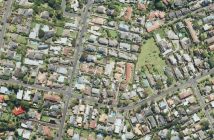The Planning Commission has made several recommendations in its blue-skies approach draft Better Urban Planning report, claiming the current system tends to be “adversarial and reactive” to the views of well-resourced and mobilised groups rather than the majority.
“We believe that any future planning system would have less regimented, but more targeted consultation requirements,” says Commission chair Murray Sherwin.
The commission believes:
- central government needs to set stronger boundaries around planning
- councils need to allow people greater scope to decide how to best use their land, subject to clearly articulated requirements for protecting the natural environment and include processes for addressing conflicts between neighbours.
The commission has recommended the establishment of a permanent Independent Hearings Panel to help councils ensure their plans meet legislative requirements, Sherwin notes.
“What we need is a responsive system that aims to deal with competing demands for resources, competing citizen interests and values,” he believes. “The commission’s draft report suggests how to achieve this.”
The commission recommends a future planning system should:
- make a distinction between the built & natural environment with clear objectives for each
- favour development in urban areas, subject to clear limits
- develop a Government Policy Statement on Environmental Sustainability to provide the boundaries within which urban development can occur
- provide narrower access to appeals and tighter notification requirements
- make spatial plans a mandatory component of the planning hierarchy
- establish a permanent Independent Hearings Panel to consider and review new plans, plan variations and private plan changes across the country
- include more responsive rezoning through the use of predetermined price triggers to signal when land markets are out of balance and rezoning is needed
- make greater use of targeted rates and volumetric charges to fund infrastructure investment and maintenance.
Sherwin says the commission has no intention of adding another layer of complexity to what is already a very complex and often conflicted system.
“There is no simple fix – it’s not just a case of changing legislation,” he maintains. “Effective urban planning is about the right mix of legislation, people with the right skills and strong relationships.”
The commission is seeking submissions from all interested parties, including residents, businesses, developers, planners, iwi, local authority staff, community representatives and environmentalists by 3 October 2016, with its final report to the government due on 30 November 2016.




